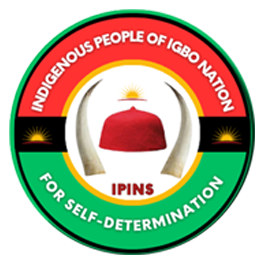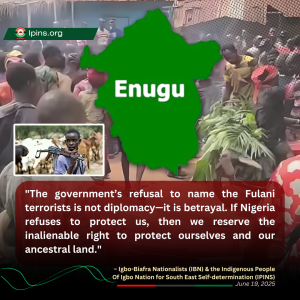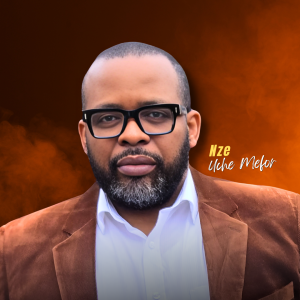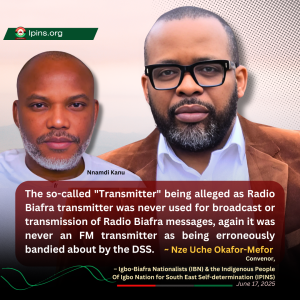
Originally Published by Authority
The Igbo-Biafra Nationalists and the Indigenous People of Igbo Nation for Self-Determination advocate for a mono-linguistic South-East region, Igbo Self-Determination agenda as a last resort, which fundamentally seeks the establishment of an independent Igbo nation. This agenda is predicated on the belief that a unified linguistic identity will foster political, social, and cultural synergy. This publication will explore the rationale behind this movement, examine the perceived benefits of a mono-linguistic state, and analyse how such an agenda aligns with the criteria for statehood as outlined in the Montevideo Convention.
Political, Social, and Cultural Synergy
The proponents of the South-East region, Igbo Self-Determination, argue that a mono-linguistic state will enhance political cohesion and administrative efficiency. In a multi-linguistic state, governance can be fraught with challenges such as linguistic barriers and ethnic divisions, which often impede effective communication and policy implementation. In contrast, a state where a single language prevails can streamline governance, reduce misunderstandings, and foster a sense of unity among the populace. The Igbo language, being central to the identity of the Igbo people, can serve as a unifying factor that reinforces a collective political will.

Socially, a mono-linguistic Igbo state can create a more harmonious society. Shared language is a powerful tool for social cohesion, as it facilitates better communication, mutual understanding, and solidarity among individuals. In a society where everyone speaks the same language, there is a greater likelihood of shared values, traditions, and cultural practices, which can lead to a more integrated and cohesive community.
Culturally, the preservation and promotion of the Igbo language are seen as vital for maintaining the rich heritage of the Igbo people. Language is a key carrier of culture; it embodies the history, customs, and worldview of a people. By prioritising the Igbo language, the proposed state can ensure the continuity of its cultural heritage, protecting it from the encroachment of dominant global languages. This cultural preservation is not only important for the identity of the Igbo people but also contributes to the global diversity of languages and cultures.
Addressing the Unwillingness to Restore Biafra
The Igbo-Biafra Nationalists and the Indigenous People of Igbo Nation for Self-Determination contend that the reluctance of other former component nations of Biafra to commit to the restoration of Biafra, as it existed from 1967 to 1970, is a significant obstacle. The Biafran secessionist movement, which resulted in the Nigerian Civil War, was a coalition of various ethnic groups within the Eastern Region of Nigeria. However, this coalition was fraught with internal conflicts and divergent interests.
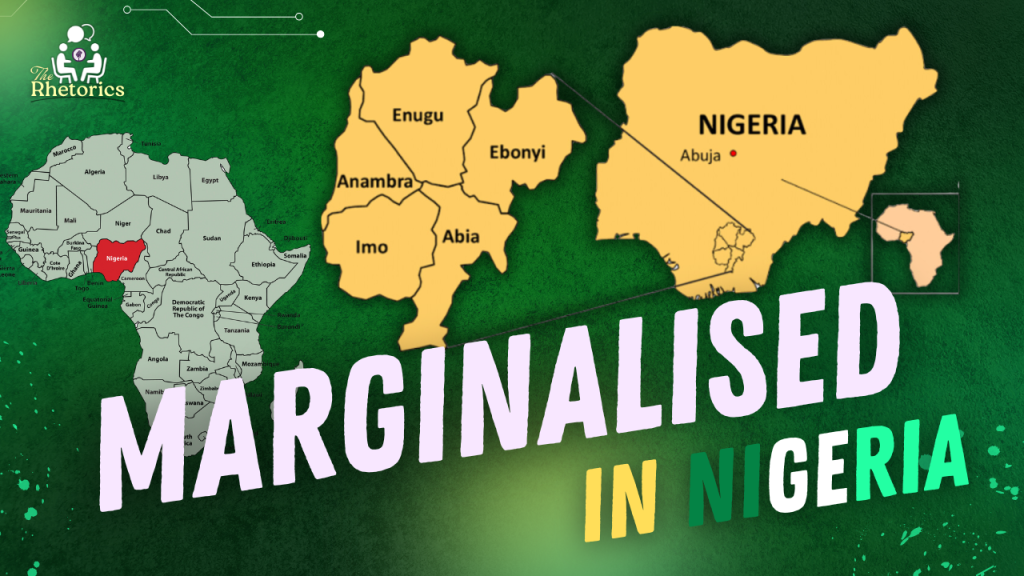
A mono-linguistic Igbo state circumvents these complexities by focusing solely on the aspirations of the Igbo people. It eliminates the need for consensus among disparate ethnic groups, each with its own language and cultural priorities. By narrowing the focus to the Igbo nation, the movement can pursue a more cohesive and achievable goal of self-determination, free from the historical baggage and internal discord that plagued the broader Biafran cause.
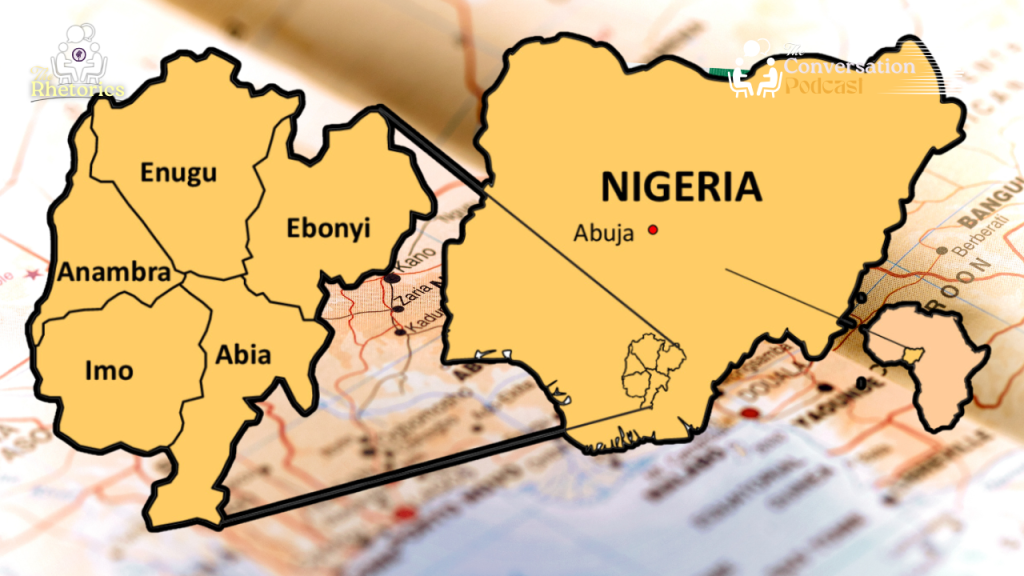
Fulfilling the Montevideo Criteria
The Montevideo Convention on the Rights and Duties of States, established in 1933, outlines four criteria that a political entity must satisfy to be recognised as a state: a permanent population, a defined territory, a government, and the capacity to enter into relations with other states. The Igbo self-determination agenda aligns well with these criteria.
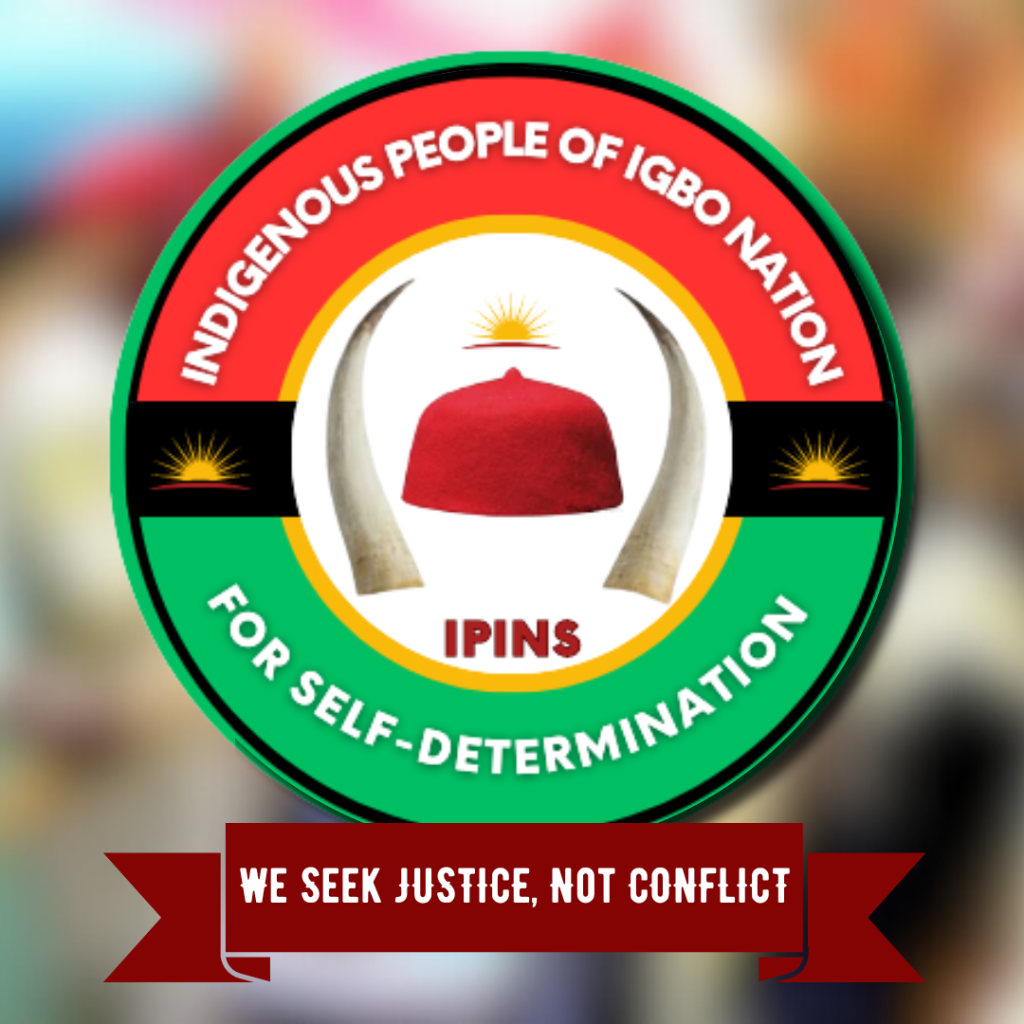
1. Permanent Population: The Igbo nation has a substantial and stable population that identifies with the Igbo ethnicity and language. This population has a long-standing presence in the southeastern region of Nigeria.
2. Defined Territory: The Igbo people occupy a well-defined geographic area, primarily encompassing the states of Abia, Anambra, Ebonyi, Enugu, and Imo. This territorial definition provides a clear basis for the boundaries of the proposed state.
3. Government: The establishment of a mono-linguistic Igbo state implies the formation of a government that is representative of and accountable to the Igbo people. Such a government would be better positioned to address the specific needs and aspirations of its citizens, ensuring more effective governance.
4. Capacity to Enter into Relations with Other States: The Igbo nation, with its significant population and economic potential, would have the capacity to engage in diplomatic and economic relations with other states. The Igbo people have a history of entrepreneurial success and cultural influence, which can be leveraged to establish international partnerships and recognition.
Finally, the mono-linguistic Igbo Self-Determination agenda presents a compelling case for the establishment of an independent Igbo nation. By fostering political, social, and cultural synergy, addressing the reluctance of other former Biafran nations, and meeting the Montevideo criteria for statehood, the movement articulates a clear and viable path towards self-determination. While the pursuit of such an agenda is fraught with challenges, it represents a significant aspiration for the Igbo people to reclaim their autonomy and cultural identity within the international community.
Uche Mefor is the Convenor of the Igbo-Biafra Nationalists and the Indigenous People of Igbo Nation for Self-Determination
